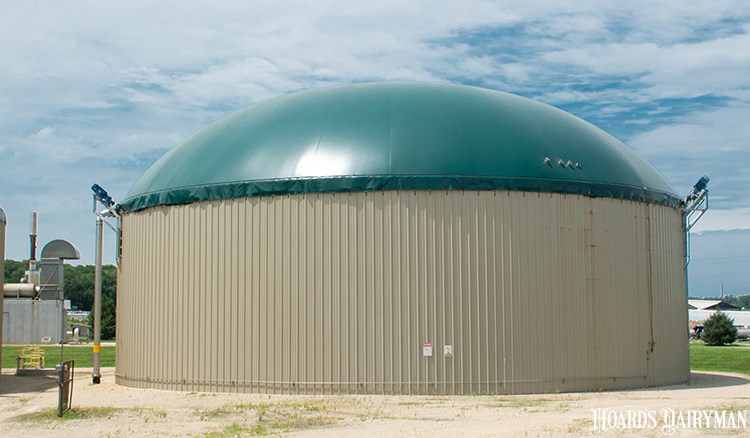
Even before the Biden Administration took office and the concept of agricultural carbon markets and credits gained steam, that important element was a major player in the discussions surrounding sustainability and climate change. “Carbon footprint” is one main way businesses and even individual products may evaluate their environmental impact.
But beyond carbon is another compound critical in the climate conversation, particularly for dairy farmers: methane. And comparing the two is kind of like apples and oranges.
On the July 21 Hoard’s Dairyman DairyLivestream, Virginia Tech animal science professor Robin White explained that methane — the natural greenhouse gas produced by cattle — has a much shorter lifespan in the atmosphere than carbon dioxide or nitrous dioxide.
Since methane breaks down faster, a scenario where methane emissions are held constant should result in basically a credit of zero global warming, White said. When methane emissions are falling, that impact is clearly even less than zero.
“What that means is we’re overestimating the global warming contribution of methane under our current calculations for most situations here in the U.S. where we’re holding [methane] emissions constant or we’re decreasing them,” she detailed.
Making the most of it
Methane’s short lifespan also means there is opportunity to manipulate it, and new tools are becoming more effective to do that. Multiple feed additive products have gained attention for their ability to reduce enteric methane emissions, and White said that area is becoming more refined.
“There’s a lot of feed additives that have been tested over the years, and the major challenge with them is they work for about a three-week period, and then the rumen microbiota adapt and kind of revert back to their original fermentation states,” she described.
But newer research on seaweed and 3-NOP shows promise for sustained and marked methane emission reductions. Along with adjusting manure management strategies, feed additives that are effective in those two areas can help make an impressive methane difference, White believes, setting dairy up for future climate success.
“On an international scale, methane is going to be a really, really important point of discussion over the next several years,” she said.
To watch the recording of the July 21 DairyLivestream, go to the link above. The program recording is also available as an audio-only podcast on Spotify, Google Podcasts, and downloadable from the Hoard’s Dairyman website.
An ongoing series of events
The next broadcast of DairyLivestream will be on Wednesday, August 4 at 11 a.m. CDT. Each episode is designed for panelists to answer over 30 minutes of audience questions. If you haven’t joined a DairyLivestream broadcast yet, register here for free. Registering once registers you for all future events.








